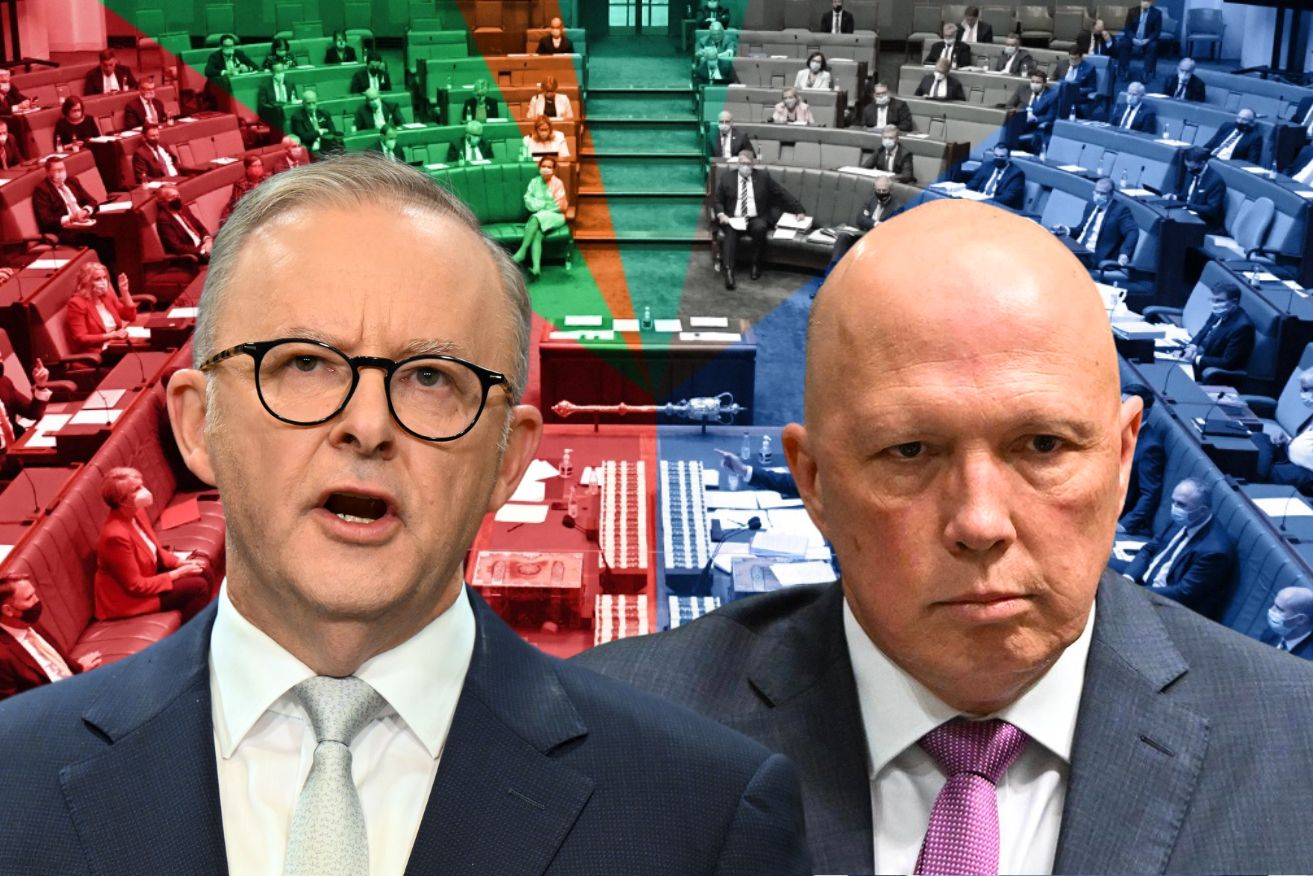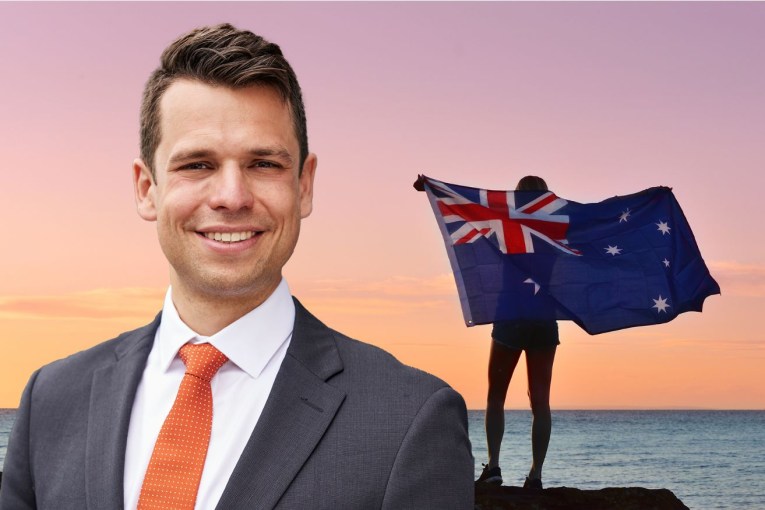Paul Bongiorno: State of play favours Labor, but major parties looking more like Easter bunnies


The strong performance of the community-based independents could affect the Coalition more than Labor, Paul Bongiorno writes. Photo: TND
A week is a long time in politics and we could be a year away from the next federal election, but a trend to independents and minor parties that began at the last election is becoming a habit.
We saw it in Tasmania at the weekend and in recent byelections state and federal. Although it is a worry for Labor and the Liberal National Party Coalition, the Albanese government appears to be better placed riding the storm than its opponents.
That observation is based on the past six months of Newspoll including the latest one, which basically shows little change after preferences and that is a key point to make.
An aggregate of the published opinion polls also bolsters this view as does some analysis by Tasmanian psephologist Kevin Bonham.
Bonham on Sunday went through the interesting exercise of applying single-seat compulsory preferencing to the 84 per cent of votes so far counted in the Tasmanian poll and he concluded Labor “would have won 53-47 per cent.”
Tasmania has the unique Hare-Clark system and while it is clear that the Liberals have won more seats than Labor, exactly who has won them in the multi-member electorates won’t be clear for another couple of weeks.
Minority report
The swing of just under 12 per cent against the state Liberals, plunging them into minority, is a fate Albanese is doing his utmost to avoid when his turn comes.
In the Prime Minister’s favour is the fact he leads a cohesive first-term government and not a 10-year-old one wracked by internal dissent that triggered the instability Premier Jeremy Rockliff sought to remedy by calling the election a year ahead of time.
In that Rockliff clearly failed miserably.
The Liberals’ performance in minority could well impact how their brand is travelling in the Island State when they come to defend the two federal seats in the state’s north, where the Jacqui Lambie Network performed strongly.
Lambie’s candidates campaigned on the cost of living and the housing crises, accusing Rockliff of prioritising the AFL stadium rather than putting a roof over many voters’ heads.
Minimum wage push
Tasmania has the lowest average weekly earnings in Australia and not to be missed on Monday was Treasurer Jim Chalmers’ blitz of national morning radio and TV programs to trumpet the government’s support for the Fair Work Commission to raise the minimum wage.
Chalmers, like his colleague Employment and Workplace Relations Minister Tony Burke, ties this submission in with the rejigged stage-three tax cuts which apply from July 1 for all taxpayers.
Opposition members guffawed when Chalmers claimed in question time “we are the party of working people” and “we are working every week to help people earn more and keep more of what they earn”.
The slogan irks the Liberals and no wonder, it sounds like it is stolen from their armoury.
But thanks to the government’s support for wages growth at the previous two wage cases, wages are growing at an annualised average of 4 per cent, which is nearly double the average over the nine years before.
The government submission is urging Fair Work to treat the wage case separate from the tax cuts.
Chalmers says he doesn’t see “the cost-of-living relief as instead of decent wages growth”.
The Prime Minister wants nothing to muddy the government’s economic messages, aware he needs to make as many posts a winner as he can if Labor is to avoid falling into minority or worse.
Clear message
A case in point is the handling of Albanese’s promised reform of religious discrimination laws.
He will only proceed if there is prior bipartisan support and no protracted Senate inquiry.
All the signs are the Coalition will not oblige.
The Liberals and the Nationals are hopelessly divided on a key proposal to rescind section 38 of the Sex Discrimination Act allowing exemptions for church schools to discriminate against students and staff on the basis of their sexual identity or marital status, and replace it with a new religious freedom act that would only allow discrimination on the basis of staff hiring eligibility.
Shadow attorney-general Michaelia Cash is demanding the draft bill be released for an open debate.
She is not going to get it because Albanese believes this would only stoke a divisive and distracting firestorm.
He does not want a repeat of the failed Indigenous Voice referendum.
Rise of the independents
Another factor at the federal level providing some consolation for Labor in light of the rise of independents is the way the six impressive women who won those hitherto blue ribbon Liberal seats are performing.
Unlike many newcomers to the backbench of either of the major parties, these crossbenchers are high profile and in demand with media.
Hard-working independents are always hard to dislodge, particularly if the party that lost to them has done nothing to address key bones of contention they identified in their electorates.
Peter Dutton’s climate policies are identical to Scott Morrison’s except they have been nuclear turbocharged.
The next set play for Labor to hold off the Liberals and the independent surge at bay will be the May budget.
Chalmers is flagging more energy bill relief – that should help.
Paul Bongiorno AM is a veteran of the Canberra Press Gallery, with more than 40 years’ experience covering Australian politics








